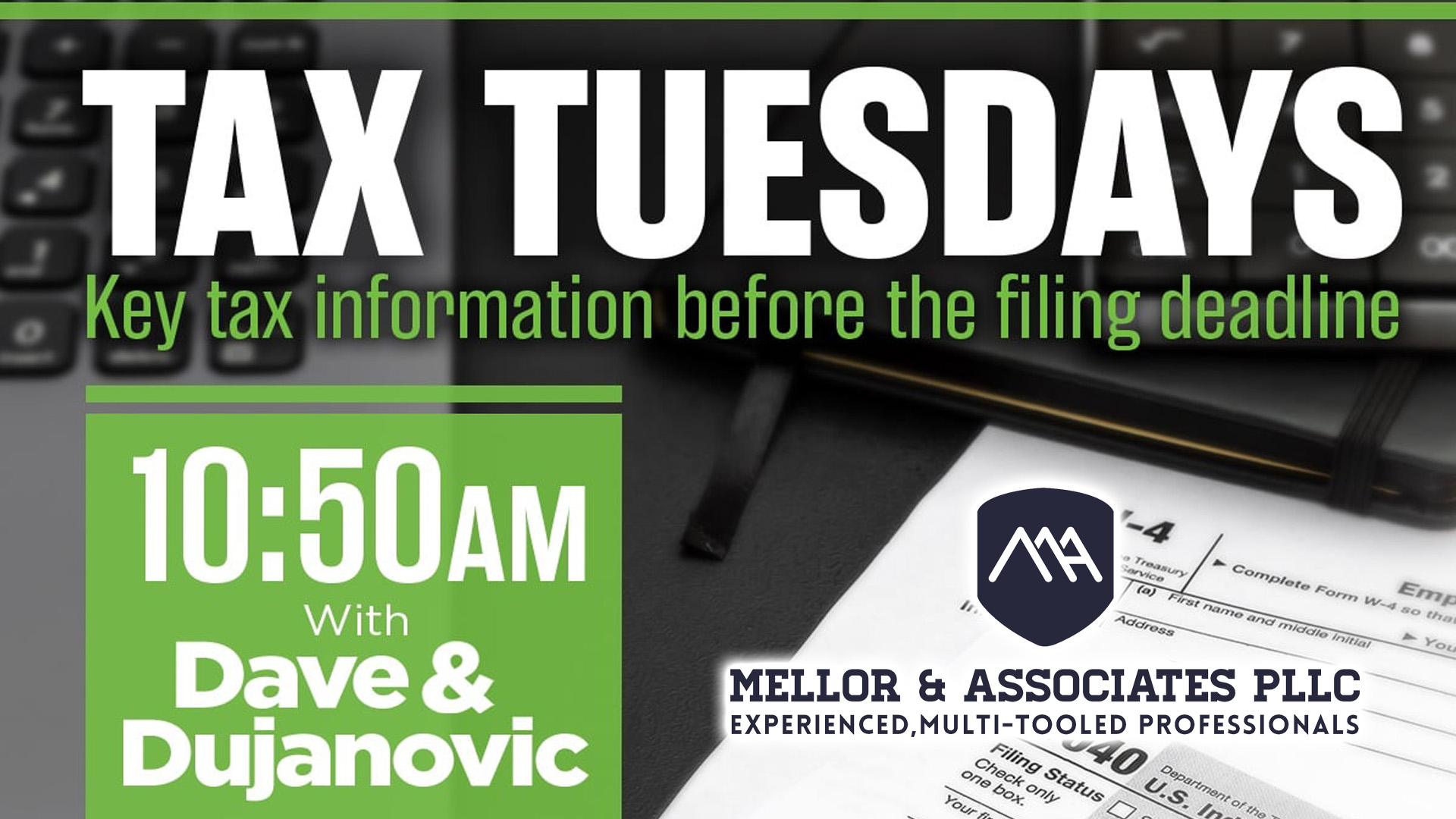Tax Tuesday: How will last year’s child tax credits affect you?
Apr 5, 2022, 3:10 PM

This article is presented by Mellor & Associates PLLC. Don’t miss “Tax Tuesdays,” as a CPA from Mellor & Associates joins Dave & Dujanovic every other Tuesday at 10:50 AM to help you save you money on your taxes.
Were you one of the millions of Americans who benefitted from last year’s child tax credits? If so, those credits will affect how much you’ll be getting back (or have to pay) when you do your taxes this year.
Fortunately, for most average earners, they will not end up owing overpayments received for the Child Tax Credit in 2021. Congress’ intent when creating those early payments was to provide families with half of the refundable credit when they would need it in the year, and then give them the rest when they file their tax returns this Spring. They also made the credit fully refundable for 2021 for this reason.
However, since the number of eligible children was based on your 2020 return, there may be some timing issues if, for example: You had a child turn 18 in 2021 or perhaps if you have an agreement with an ex-spouse to trade dependents every year on your taxes.
In few cases, there is the possibility that a portion of the advance payments needs to be repaid; however, most people don’t have to pay it all back if their income is less than $80,000 for Single filers, $100,000 for Head of Household Filers, and $120,000 for Married Couples Filing Jointly. The calculation gets a little tricky to explain, but a qualified tax professional can help you find out if you owe or get to keep any Advance Child Tax Credit Payments from 2021.
What issues could people be facing?
The biggest point where people might run into issues is making sure they include the correct amount they received in Advanced Child Tax Credits, which were those monthly payments from July-December of last year. The IRS should have sent a Letter 6419 detailing the total payments a taxpayer received and the number of children they considered for those advanced payments. If you didn’t receive that letter, you can also Google “IRS Child Tax Credit Portal” to find that amount online. It’s important that taxpayers report the correct amount of payments, as it could delay processing and refunds and lead to additional review of their returns.
Is this credit refundable?
Yes for 2021, the IRS has treated this credit as fully refundable for 2021, but only this year. If you received any portion of the advanced payments from July through December of 2021, you will receive the remaining amount of the credit when your 2021 returns are filed. This also means that taxpayers can generally expect a larger refund for 2021 than other years. However, unless the 2021 provision is renewed for next year – only $1,400 of the credit will be refundable in the 2022 tax year and going forward.
I heard childcare expenses paid for children under 13 may be refundable as well such as daycare and nannies.. what does that include? How does it work?
This is a different credit known as the Dependent Care Credit. The biggest qualifiers for this one is that both parents or a single parent were either working, looking for work, or a full-time student when these expenses were incurred. It’s also important to note that dependent care expenses for this credit don’t include things like food, diapers, or things of that nature; it only counts for the cost of having someone else care for your child.
This is where you include payments to nannies, before/after school programs, preschool, or day camps.
For 2021, you can claim up to $4,000 for one child, or up to $8,000 if you have more than one. Unfortunately, it’s capped at that $8,000 limit if you have more than two children though. There are phaseouts once your income exceeds $125,000 for the year or if you have a pre-tax FSA that you use for childcare expenses, so make sure to have your credits calculated properly by a good software or tax professional.
Additionally, there is also a provision to claim the credit for someone over the age of 13 if they are your dependent and are unable to care for themselves throughout the year, though this is a lot less common. Again, be sure to check with your tax preparer on this one if you think you qualify, and you may be able to claim expenses incurred for their care as well.
###
Related: The Employee Retention Credit is a refundable tax credit that many businesses don’t know about.
Get a free consultation at UtahERC.com.








